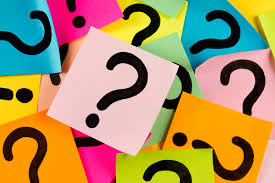Hi everyone! A heartfelt thank-you as always to all the people who sent me their questions! I hope everyone, whether you asked me a question or not, finds this post helpful and informative.
As with my other Ask the Editor posts, I humbly ask that you take my comments in the spirit in which they’re intended. The advice here is meant to be friendly and helpful; I sincerely hope no one finishes this post feeling vulnerable or discouraged.
And of course, a general disclaimer that my thoughts are my own; I do not speak on behalf of my publisher or the publishing industry in general. I wouldn’t be surprised to learn that you’ve heard an editor or agent say something that directly conflicts with my perspective. Everyone in publishing has their own views and preferences, and I can only represent my own.
Thanks so much, and happy writing!
I’ve heard that sales are slow right now, especially for picture books. Is it true? And if so, why?
From an overall industry perspective, children’s and YA book sales are actually performing pretty consistently compared to recent years. The issue is when you start comparing frontlist books (books that have been published in the last 12 months) to backlist titles (all books that have been out for at least a year).
When I started working in publishing, publishers’ revenue was generally split 50/50 between frontlist and backlist—meaning your new releases were bringing in just as much as all your older titles combined. That’s been shifting over the past ten years, exacerbated by the pandemic and the rise of online shopping, so that now it’s more like 20/80 frontlist vs. backlist. Which is to say, it’s harder for people to discover new books when they’re not actively going out to bookstores and instead relying on sites such as Amazon, whose algorithms favor backlist books that have proven sales tracks. So every new book that gets published is automatically facing those headwinds.
That means it can be tricky to break out with a new picture book if, for example, you’re a debut author without a platform, or the book isn’t focused on something that people will specifically be searching for (such as a Valentine’s Day book or a potty-training book). Even more so than picture books though, we’ve been seeing middle grade titles struggle for a few years now. There’s reason to believe that’s improving, but it’s been an especially tricky space to publish in lately; the most common theory for that is pandemic-related drops in reading levels and increased time spent playing video games for that age cohort.
That all might sound a bit doom and gloom, but the publishing industry is both resilient and adaptable, so please don’t let any of that discourage you from writing exactly the book you want to write!
How can I know what agents are trustworthy? Would you recommend any reputable agents and/or publishers for those of us with little experience?
I do think that most of the agents and editors you find in your research will be trustworthy, but of course it’s always good to be on the lookout for red flags. Reputable agents and publishers will not ask you to pay them for representing or publishing your book; agents make 15% of what their authors make on a book deal, meaning they don’t make any money unless and until they sell your book. And while publishers may ask you to foot the bill for promoting your book, they should be paying you, whether through an advance, royalties, or a flat fee.
It probably goes without saying, but it’s also good practice to have a meeting with your agent and/or publisher before signing a contract with them (and have a professional look over any contract before you sign). That will also help to give you a sense of their style and whether they’re a good fit for you. Ideally, this is someone you’ll be working with for years to come, so even though it can be tempting to take the first “yes” you get, take the time to make sure the vibes are right and that this is someone you’ll enjoy partnering with.
What kind of books and topics are you looking for at the moment?
I’m always on the lookout for Christian picture books and clean teen novels (I especially love romances and mysteries!). Beyond that though, I don’t have anything too specific on my wish list; I prefer to just take each submission as it comes. I will say that the things that get me (and probably every other editor out there) excited about a project are really strong writing and a great topic or premise. If you’ve got those things, you’ve got my interest!














